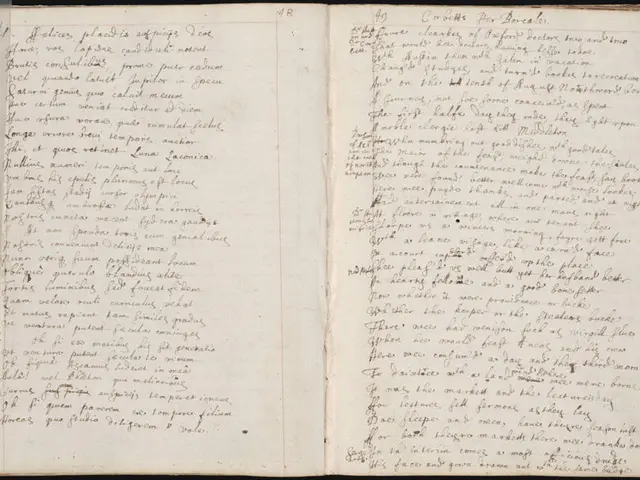Three Confidential Matters Stoicism Advises You to Maintain at All Times
In the world of ancient philosophy, Stoicism, founded in Athens around 300 BCE, has stood the test of time as a guiding principle for living a good life. This philosophy, which emphasizes virtue, self-control, and wisdom, has much to offer in today's connected world, particularly when it comes to privacy.
Marcus Aurelius, a renowned Stoic philosopher, believed in doing right actions without witnesses, seeing goodness performed without an audience as the purest form of virtue. Seneca, another Stoic, shared this sentiment, believing that virtuous actions need no audience.
In today's social media-driven society, the impulse to document and share every act of kindness or charitable deed can sometimes undermine the spirit of genuine giving, according to Stoicism. The principles of this ancient philosophy can help us strike a balance between sharing and maintaining privacy in this digital age.
The Principles of Stoic Privacy
Avoiding Oversharing and Real-time Posting
Stoics like Marcus Aurelius and Epictetus would not have posted their lives online. Sharing too much publicly invites unnecessary vulnerabilities and external judgments. Keeping celebrations, personal details, and whereabouts private protects one’s mental space and safety in a digital age where oversharing is normalized and can be exploited.
Valuing Silence as a Strategic Strength
Silence is not weakness but an important Stoic strategy for maintaining peace and control over one’s narrative. By withholding certain personal information, you reduce exposure to harmful opinions or manipulation from others.
Discretion as a Stoic Virtue
The ability to keep important things private is linked to wisdom, dignity, and strength. It shields emotional energy and maintains personal power, fostering better relationships and a calmer mindset.
Focusing Only on What is Within Your Control
Since other people’s judgments or reactions are beyond your control, Stoics advise not to worry about public opinion or feel compelled to share for approval. Concentrating on your own virtue and inner life helps preserve tranquility and autonomy.
Setting Healthy Boundaries
Privacy serves as a boundary that protects relationships from unwelcome external interference. Oversharing invites opinions from people with no stake in your well-being, potentially weakening intimate bonds.
Together, these principles help people today balance sharing and privacy by encouraging mindful posting and selective disclosure, which guards mental peace, personal security, and emotional resilience in an age of social media excess and digital surveillance.
In essence, Stoicism teaches the value of mindful restraint and intentional privacy as ways to maintain control of your digital identity and personal life. It emphasizes that true freedom and power come from discretion and focusing on what you can control.
- The principles of Stoicism, like those advocated by Marcus Aurelius and Epictetus, encourage individuals to keep celebrations, personal details, and whereabouts private, as oversharing can potentially invite unnecessary vulnerabilities and external judgments.
2.Silence, as a strategic strength in Stoicism, is not considered a weakness but an important tool for maintaining control over one's narrative, reducing exposure to harmful opinions, and protecting mental space and safety.
3.Stoics value discretion as a virtue, linking the ability to keep important things private with wisdom, dignity, and strength. Maintaining privacy cultivates better relationships, fosters a calmer mindset, and helps preserve tranquility by shielding emotional energy and maintaining personal power.






